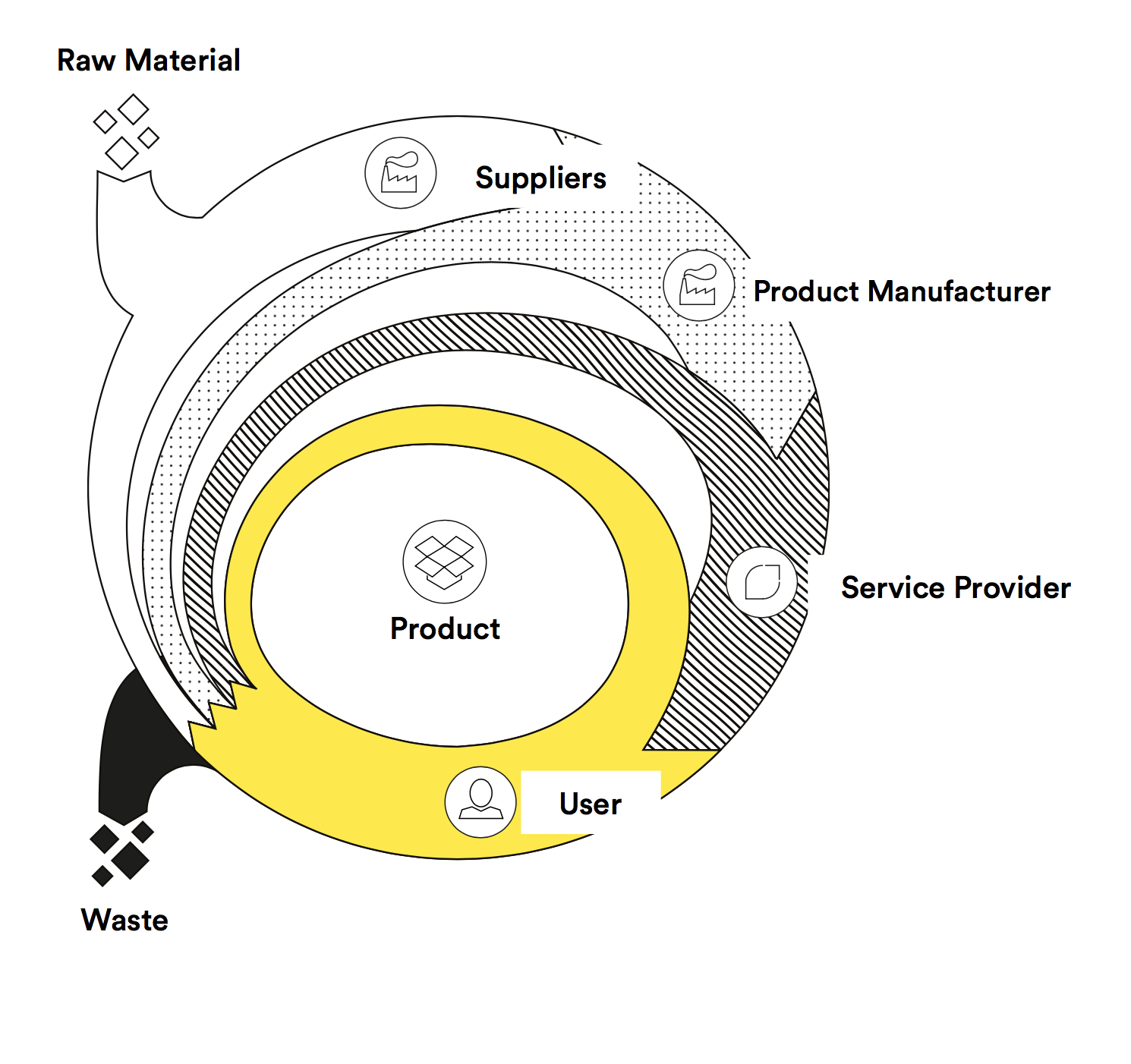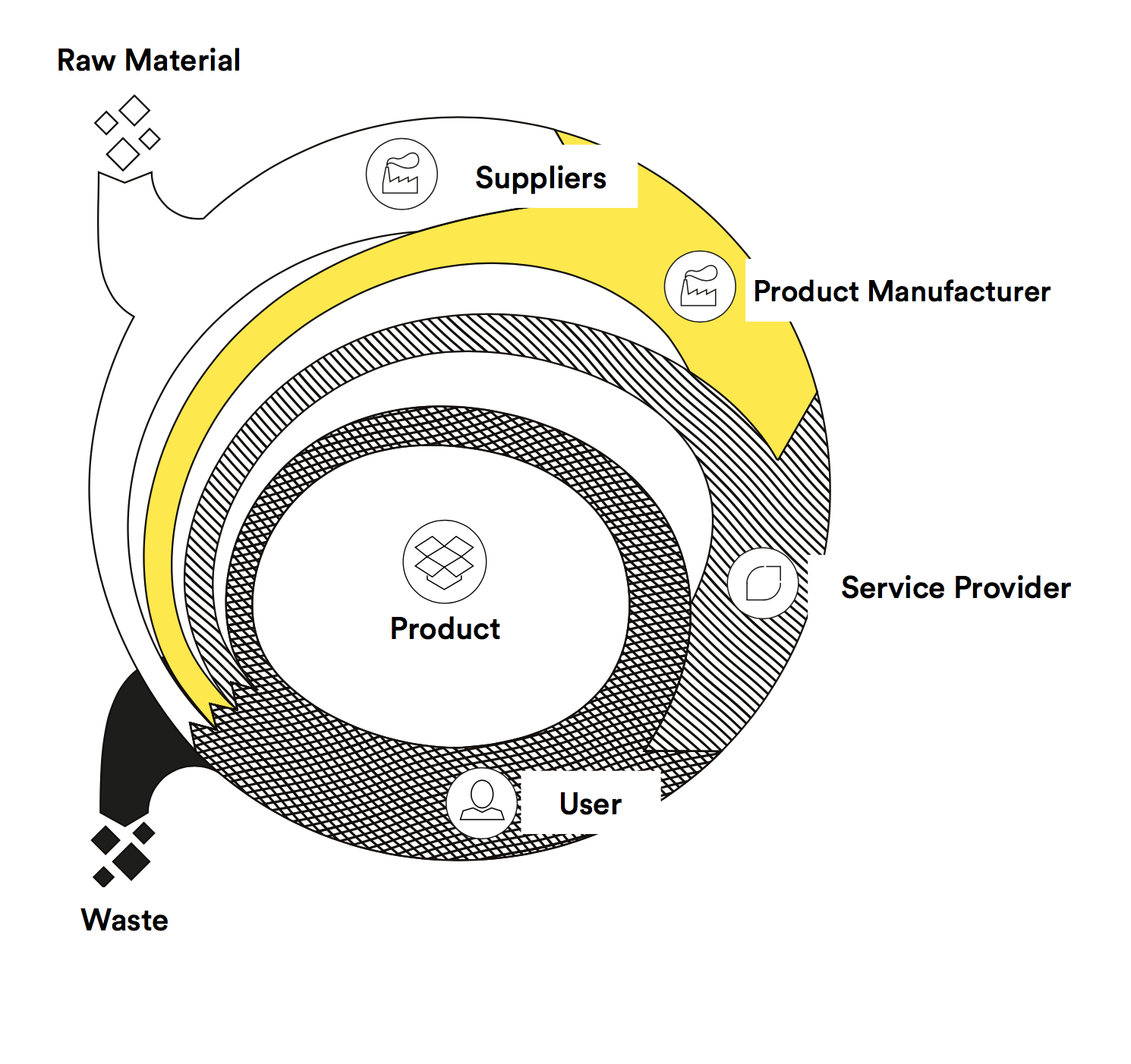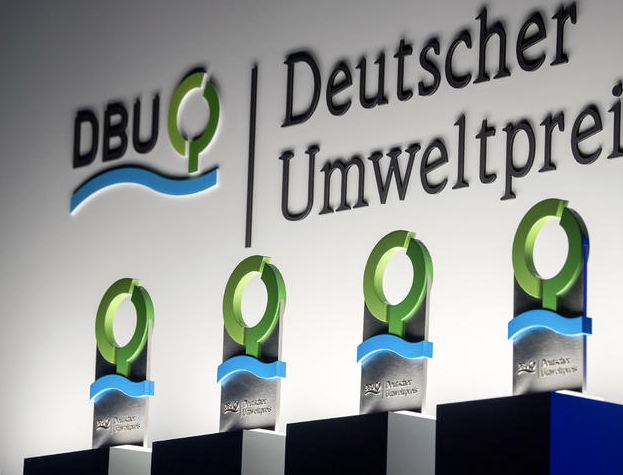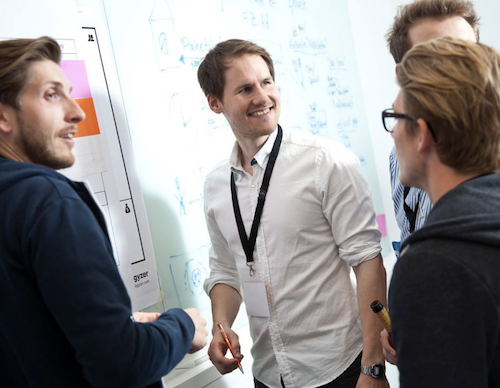
Hi, I’m Chris!
I am a circular economy (CE) expert and innovation strategist. You want to use the latest CE insights and best practice for your business? In expert talks and workshops I show the why, how, and what of CE thinking and doing. Let me introduce you to the principles, building blocks and business models of the CE.
Circular Principles
A circular economy aims to be restorative by design. At the core, the objective is to move away from the “take, make, waste” linear system by designing, using and optimising product-service-systems and business models for multiple cycles of disassembly and reuse before conventional recycling.
01 / Longevity by Design
Through Maintenance and Modularity
Optimised utilisation of products and parts. Repair of damaged and upgrade of obsolete products. Sale and reuse of products by other users.
02 / Access over ownership
with performance-based models
Selling the service a product provides. Provision of a product or sale of a result. Product remains the property of the service provider or manufacturer.
03 / Remanufacturing and reuse
of products as a whole
Product take-back systems and reverse channels in order to refurbish and/or remanufacture products as a whole.
04 / Closed-loop recycling
for retaining resource values
Material recycling to preserve the value of contained energy and labour. Manufacture of secondary raw materials.
Clients
I help corporations to build a circular innovation strategy, deepdive into circular best practice, kickstart innovation labs for circular product and service design, develop performance-based business models for mobile phones and cars, identify and pilot technical solutions to recover metals, phosphorus or water from waste streams.
Keynotes & Expert Talks
For many corporations and C-level executives circular economy thinking is still a blackbox. I regulary talk in public and corporate sessions about the A-Z of circular economy, innovative business and service models and state of the art technologies. Here, some keynote titles of my public appearances in the last two years.
Sustainable Product Design Commitee DBU 2019
Circular Business Models for Fast Moving Consumer Goods
DBU (Deutsche Bundesstiftung Umwelt) is Germany’s largest foundation for Environmental Protection. In February this year I was asked to consult a strategic project group in their German HQ.
Circular Design in Chemial Industry 2019
Resource Efficiency Expert Roundtable at DECHEMA
DECHEMA is Germany’s biggest association for Chemical Engineering and Biotech. I was invited to present a longterm perspective on the impact of CE on the Chemical Industry for the ProcessNet initiative.
Designing the Org Meetup 2019
DTO: Designing the Organization by Playframe
In June this year, I was invited to a meetup hosted by Design Consultancy Playframe and Dan Pearlman in Berlin to shed light on the intersection of Circular Economy and Organization Design.
Creative Business University Workshop 2019
Circular Innovations: Course Design and Workshop
Over the course of 2019 I have been advising a faculty team of the Applied University Utrecht (Netherlands) in setting up a “Circular Innovations” course for their Creative Business program.
Phosphorus Recycling Congress 2018
Circular Economy: More than just Recycling
In late October 2018, I did the keynote at the 4th Phosphorus Recycling Congress in Stuttgart. My input focused on the intensifying regulatory framework around recycling quotas and ecodesign.
Design at Business 2018
Circular Value Creation in Product-Service-Systems
In June 2018, I was invited by a professional network of corporate designers to discuss the impact of sustainability and circular value creation on design thinking. The meetup was hosted by Steelcase, Munich.
Service Design Drinks 2018
Riga Comm 2017
Service-Dominant Logic in Circular Economy Thinking
The Berlin Service Design Drinks is Germany’s biggest community around the topic. I spoke about the differences in goods-dominant and service-dominant logic and the important role of (service) designers in circular economy.
Intelligent Assets: Technology Enablers in Circular Economy
In early 2017, I had the chance to speak at Latvia’s biggest innovation and technology conference RIGA COMM. My keynote focussed on technology enablers for reverse logistics and material tracking and tracing.
Looking for a circular economy expert for your project?















